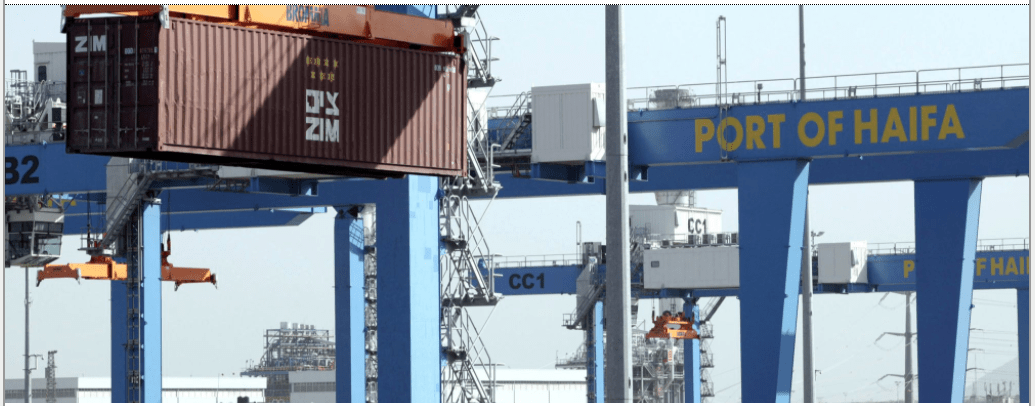
Photographer: Ariel Jerozolimski
Supply Lines
Israel Pushes to Sell Its Biggest Port as China Builds Rival
By Ivan Levingston
August 4, 2020, 11:00 AM UTC
After years of delays, Israel is finally privatizing its largest seaport — just before it gets a serious rival next door.
Since the northern Port of Haifa was inaugurated in 1933, preceding even the state’s foundation, it has served as the primary naval gateway for everything from waves of Jewish immigrants to container shipments.
But officials are now pushing forward with a privatization plan meant to make it more competitive, right as Shanghai International Port Group Co. prepares to open an advanced harbor next year in the same city.
Officials want to sell the older Haifa port for as much as 2 billion shekels ($586 million), but regardless of the final price, the first 1 billion shekels from any deal will go into upgrades like building a new deep-water platform.
The privatization plan also calls for slimming down the workforce, and the government hopes to attract strategic buyers by offering bidders a discount if they bring partners with expertise in fields like seaport management.
“It’s not the ideal time, but in any case, if we wait it’ll be even more difficult to go forward with this,” said Eshel Armony, board chairman for the Port of Haifa. “We’ll need people that come from the international business arena and bring new ideas, who can really help the company stand up to the competition.”
Extra revenues from the sale will go into Israel’s coffers at a time when it’s badly needed, because the deficit is ballooning to fund emergency aid during the Covid-19 pandemic. Israel is not alone in looking to port privatization to help raise funds and spur development, with nearby Greece also moving ahead on similar plans.
U.S. Concerns
Chinese state-owned SIPG’s role at the new port had drawn concern from the U.S. because it’s close to a dock used by American navy ships, and more broadly, Washington has urged Israel to be cautious about Chinese investment in major infrastructure projects.
Nevertheless, Israel doesn’t plan to ban Chinese companies outright from bidding for the old port — though any offer will have to undergo a comprehensive vetting process as with any sale of a strategic asset.
While bidding will only seriously get under way later this year, there’s already one player expressing interest: Eli Tilles, the Israeli businessman who won the bid to privatize the country’s southern Eilat port a few years ago. “There’s big potential for Haifa,” he said.
—Ivan Levingston in Tel Aviv
